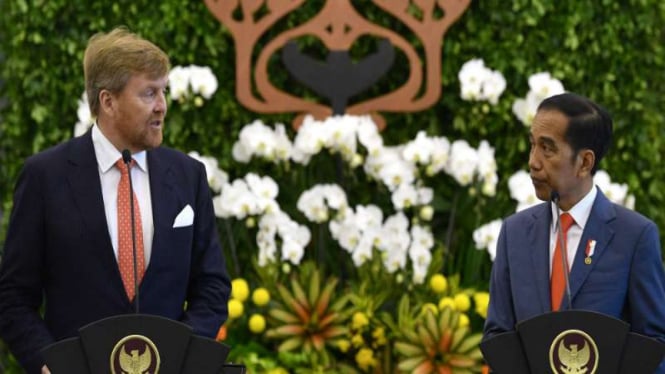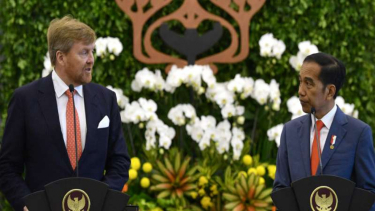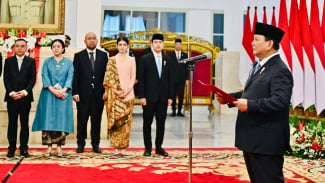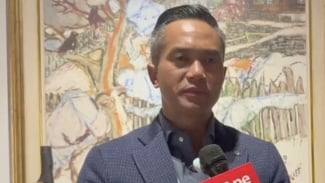Dutch King Says Sorry for Colonial-era Slavery
- ANTARA FOTO/Sigid Kurniawan
Amsterdam – The Dutch King Willem-Alexander on Saturday has said sorry for his country's historic in slavery and its ongoing repercussions, as the Netherlands begins an official event to mark 150 years since the end of slavery in Dutch colonies.
The king issued his apology during a speech marking the event, "Today I'm standing here in front of you as your king and as part of the government. Today I am apologizing myself," Willem-Alexander said.
"And I feel the weight of the words in my heart and my soul." he added.
The king commissioned a study into the exact role the Dutch royal family, the House of Orange-Nassau, played in slavery in the Netherlands.
He asked for forgiveness "for the clear failure to act in the face of this crime against humanity."
Presiden Jokowi (kiri) dan Raja Belanda Willem Alexander (kanan) dengan Keris
- ANTARA FOTO/Sigid Kurniawan
Thousands of descendants from the former Dutch colony of Suriname and the Dutch overseas territories of Aruba, Bonaire and Curacao are attending celebrations in Amsterdam.
The event has been dubbed "Keti Koti," meaning "breaking chains" in Sranan Togo, a Creole language spoken in Suriname.
The Dutch King's apology comes amid widespread reflection on the Netherlands' colonial past, including Amsterdam's involvement in the Atlantic slave trade, and slavery in its former Asian colonies.
In 2020, Willem-Alexander had also apologized to Indonesia for excessive violence during the Dutch colonial period.
Meanwhile, in December, Dutch Prime Minister Mark Rutte admitted that his country was responsible for the lucrative Atlantic slave trade and he apologized.
Rutte said that the Dutch government would not pay compensation costs, as recommended by an advisory panel in 2021.
A study commissioned by the Dutch government published last month found that the Netherlands profited around $600 million (IDR 9 Trillion) from colonization between 1675-1770. Most of the profits came from the Dutch East India Company's spice trade.
In December, the Dutch Royal Council ordered an independent investigation into the role of the Royal Family in Dutch colonial history, the results of which could be available in 2025.

























